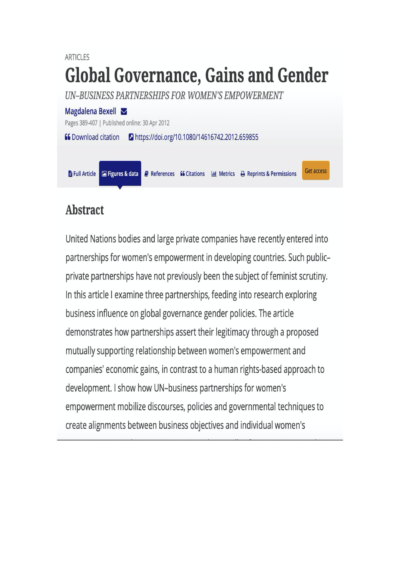
- Report year:2012
- Report author: Magdalena Bexell
- Organisation: https://www.tandfonline.com/toc/rfjp20/current
Bexell argues against schemes for women’s empowerment that are based on public– private partnerships between United Nations agencies and large private companies. Such arrangements, she explains, derive their legitimacy from the seeming mutually beneficial relationship between women’s advancement, on the one hand, and corporate profits on the other, and not from the international human rights architecture. While the market-oriented approach may benefit individual women, it does not challenge the structural barriers to gender equity in the global economy. This article is relevant to gender equity in resource development, as it highlights the drawbacks of strategies that rely on market mechanisms.
